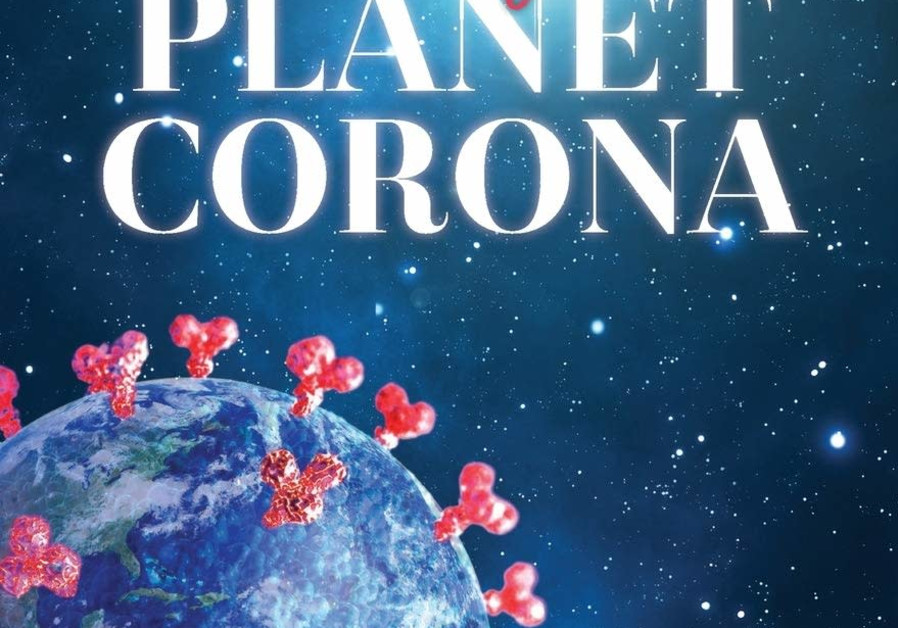I understand why Chaya Passow wrote this book, or rather the letter-emails that together constitute this work. It was therapeutic.
The author was striving to keep her sanity.
“What had begun as a way of reassuring myself, forming my thoughts, even taming my demons became an outpouring that soothed, enriched, and quite surprised me,” she writes.
As important, it was an effort to lessen the anxiety of those friends, relatives and acquaintances who received the emails. Whether anyone would want to read about the author’s efforts, especially in the midst of a continuing pandemic, is another matter.
Mask wearing. Social distancing. Lockdowns. Surges in new cases and deaths. Second waves. Third waves. Fourth waves? Open schools. Close schools. Restaurants and bars, closed, open.
Why would anyone want to relive those horrific months?
Passow does. Her desire stems from her uncanny ability to find the hidden positive in the seemingly unbearable.
Our appreciation of what we had has increased, she writes.
“We no longer undervalue the ‘freebies’ such as hugs, face-to-face talks, guests at the Shabbat or holiday table, large and pleasant family gatherings, etc. If we can hold on to our new and deeper understanding of what ‘really counts’ when this is all over, we will have gained immeasurably from the experience.”
She tries to give everything a positive spin. For example, on Planet Corona – formerly, our home was Planet Earth – we don’t really understand how we got here, so we have no past. We don’t know where we are going so we have no future.
ON PLANET CORONA, we’re stuck in the present. In reality that’s all we ever have, Passow believes, but we don’t realize it, dwelling too much on the past and future.
“Therefore, we might as well live fully in the present, in the surroundings, situation, and with the people of here and now. It’s all we have and, frankly, it’s quite a lot.”
Or, she meditates on how the coronavirus has unified the world.
“In the past, few of us have paid much attention to the concerns of people from a different country or of a different race or religion. Perhaps we’re not even doing it right now. But the fact is that we are sharing the same concerns, and if we reflect on our situation we might note that we are united with many millions and perhaps billions who share that situation.”
Her deeply held religious beliefs are the foundation for her outlook. Living on Planet Corona, humans have learned that we are all less knowledgeable, in control and safe than we had previously thought. That, Passow writes, should fill people with “good, healthy humility,” making us like that “most humble of men,” Moses.
The pandemic is an opportunity to see whether we want to return to our previous normal or make a “new normal.”
The author writes, “We do appear to be at a crossroads of sorts where we have an opportunity to re-evaluate our world globally, nationally, and personally and see what we should keep, what we can adapt, and what we should discard.”
She has started a “Book of Diamonds” in which she tries “to uncover and record some unexpected but positive elements in each day’s experiences and events.”
For me, all this is Pollyanna on steroids. The past 15 months have been a horror show of death and sickness and fear. It has not engendered in me the slightest tinge of optimism. On the contrary, despite the vaccines, we still don’t know if – and when – the pandemic will end. And the really terrifying aspect of all this is that some scientists warn that another pandemic may be just around the corner.
I understand that Passow is a good person trying to provide comfort to those receiving her letters. I respect her for that. For me, however, the best way to deal with this pandemic is with truth, not homilies that encourage unrealistic, rose-colored visions.
But if searching for “diamonds” helps you get through another COVID 19 day, this book is for you.

The writer’s memoir, Figs and Alligators: An American Immigrant’s Life in Israel in the 1970s and 1980s, can be purchased online.
